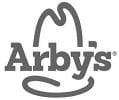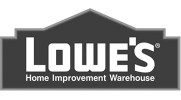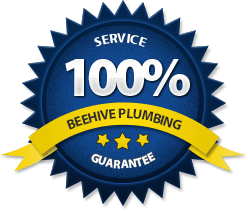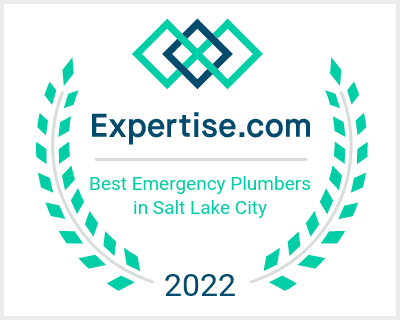The Beehive Plumbing team helps Utah home and business owners with a variety of toilet repairs, and here are 5 tips to prevent overflow issues!

Home and business owners throughout Northern Utah are always trying to avoid toilet repairs for obvious reasons, and one of the most common toilet repairs is overflowing toilets.
Although it’s always pretty difficult for people to admit that their toilet has started overflowing due to their own errors or maintenance lapses, there truly is no hiding the amount of urgency that’s required to resolve these types of plumbing repairs. Toilet overflows are many times the result of serious clogs that are deep within your property’s plumbing system, and that’s why these types of issues need be thoroughly examined by the Master Plumbers at Beehive Plumbing right away.
Toilet water also tends to be rather hazardous and can pose structural damage threats if you neglect the issue for too long, which is why overflowing toilets are also many times considered to be emergency plumbing scenarios.
So what we’ve done on this page is develop 5 preventative tips that home and business owners can follow in terms of avoiding overflowing toilets!
1. Always Be Cautious About What You Flush!
Although it’s true that every toilet is a pretty powerful plumbing appliance, every toilet is also going to have its limits. Even the most cutting-edge toilets found throughout the entire plumbing industry are only designed to flush light paper products and human waste, so there will always be the chances for a clog when a toilet is forced to flush something that doesn’t break down that easily.
One of the biggest concerns you should always have when it comes to your toilet is the possibility of clogged toilet pipes, and what tends to occur within clogged toilet scenarios is that flushed material will have to find another exit path: i.e. back the way it came.
One of the best ways to prevent overflowing toilets is to be very vigilant about what you actually flush down your toilet, which means only toilet paper and your personal sewage waste. Things like cat litter, wet wipes, sanitary napkins and paper towels should NEVER be flushed down your toilet, and for parents this means properly educating your children about why these things can never go down the toilet.
So if you are starting to notice any toilet clog warning signs, then you should reach out to our plumbing specialists right away before an overflow situation occurs!
2. Not All Toilet Papers Are The Same
We understand how a lot of people simply enjoy using soft, comfortable toilet paper, but unfortunately these types of plush toilet papers can actually be pretty detrimental to the upkeep of your toilet.
Certain commercial plumbing toilets may be able to properly flush thick toilet paper for awhile, but even those large plumbing systems won’t be able to handle it forever. That’s why residential plumbing systems tend to be even more susceptible to issues posed by thick toilet paper.
Over a period of time your home’s plumbing system will not be able to properly break down all of the dense paper that you flush down your toilets, and this tends to lead to a serious clog. The best way to prevent this type of clog and subsequent overflowing issue is to solely purchase mid-level toilet paper that isn’t too thick.
If you truly like having thick toilet paper, then try compromising for double-ply toilet paper that has sufficient padding but is still convenient for your plumbing system as well!
3. Conducting Regular Maintenance Checkups
The vast majority of Utah homeowners don’t realize their toilets are having issues until it’s way too late, so it’s always important to be on the lookout for certain toilet repair warning signs to help you prevent overflows from occurring.
One quick checkup you should regularly conduct is thoroughly examining the integrity of your toilet bowl, which means making sure that there are no cracks or buildup marks. You should also always check up on your chain, flapper and float balls, because these parts may need to be replaced after many years of regular usage.
4. Always Avoid Chemical Drain Cleaners
Chemical drain cleaners are actually always pretty detrimental to your home’s plumbing system, including the overall integrity of your toilets. This is because these types of drain cleaners will utilize very corrosive chemicals in order to break up all sorts of materials within your pipes, and these corrosive agents will always pose threats to the longevity of your piping system.
This can ultimately lead to must worse issues than overflowing toilets, like leaking and even burst pipes. That’s why you should always reach out to our plumbing experts to properly resolve your clogged drain issues via our state-of-the-art plumbing technology.
5. Always Address Running Toilets As Soon As You Can!
A “running toilet” refers a toilet that continuously pumps water into the toilet bowl even after the completion of the flush, and this is a clear indication that you’re experiencing an issue with your toilet’s tank.
This could be a sign that your flapper isn’t properly closing, or that there’s too much water being retained within your tank. But no matter what your problem actually ends up being, it’s always going to be absolutely critical that you promptly address these types of warning signs.
This is mainly because there can end up being a detrimental ripple effect throughout the many parts of your toilet if you neglect it when it’s continuously running, and this can lead to much bigger issues in the future!
Reach Out To The Plumbing Specialists At Beehive Plumbing For More Information About How We Help Our Clients With Toilet Repairs!
Beehive Plumbing has supported countless homes and businesses throughout Northern Utah for over 20 years with all sorts of plumbing issues, and we’re experienced specialists with all types of toilet repairs.
So always feel free to reach out to us online or call us at 801-661-8155 to get in touch with our plumbing specialists who can answer all of your questions about what’s going on with your latest need for toilet repairs!













